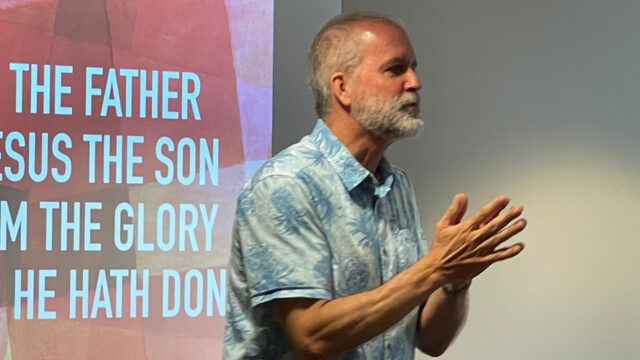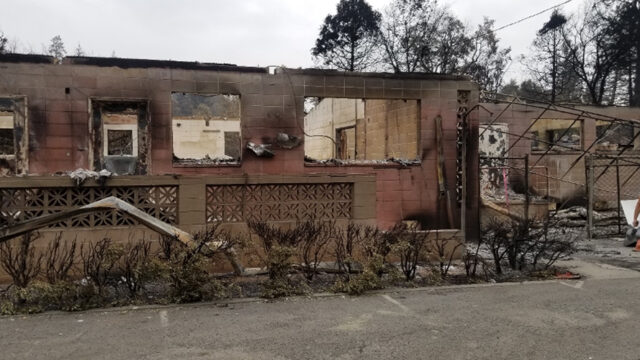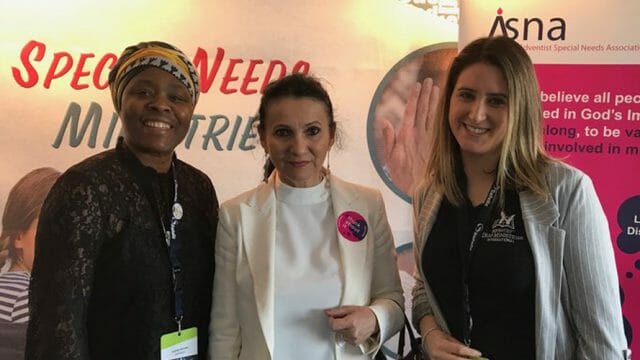God may be calling you to reach out to heal what hurts within.

It was the buttermilk on the cornflakes that finally drove me to despair. I shoved my tray of uneaten food into the return rack, hurried back to my dorm room, and sobbed and sobbed.
I was probably the least-prepared victim of homesickness who ever went away to an Adventist college. Halfway through my college career, I arrived at Newbold College in the fall of 1977, convinced that the next few months were sure to be the most exhilarating of my 19 years. As a confirmed Anglophile, I had devoured histories of England since I was a child and was halfway through a major in English literature just then. The chance to walk where Shakespeare had walked, where Elizabeth ruled, where generations of my ancestors had lived and died, filled me with a kind of holy wonderment. I settled into my first week of classes with zest made up of one-part adrenaline and two parts glee.
But then it started happening. Inexplicably (and embarrassingly), every morning as I ate my breakfast in the cafeteria, a lump the size of a tennis ball would rise in my throat, my eyes would begin to brim with tears, and the food would stay uneaten on my tray. Newbold breakfasts being what they were in the late seventies, guys my size tried to eat everything allowable on the one pass through the line in order to make it to lunch without fainting. Leaving any food on the plate was not a nutritional option.
Try as I might, the toast and juice and strange-tasting Weetabix simply wouldn’t go down. It was the morning that I accidentally poured buttermilk instead of whole milk on my one and only bowl of cornflakes that broke this camel’s back. Cornflakes and I have never liked each other; I detest buttermilk.
I sat on my bed that gray morning, sobbing from some deep center I didn’t know I had, while the rational part of me tried to figure out what was happening. No, I wasn’t classically homesick: I had certainly been away from Mom and Dad before for weeks at a time. And my stateside girlfriend and I weren’t engaged in anything more serious than a terribly romantic transatlantic correspondence. Breakfast couldn’t be the reason, either: at our house, breakfast was a fend-for-yourself kind of meal where you gulped your Wheaties before dashing out the door to school. It certainly hadn’t been some warm, supportive time of family bonding like supper usually was.
So why the tears at breakfast? Between long, shivering sobs, I began asking God about it. I prayed from that newly discovered place inside me where all these powerful emotions had apparently been building up for days, asking for calmness and peace and the chance to get through journalism class without red eyes. And the answer came back that it was loneliness more than “homesickness” I was experiencing. It was that I was missing the sharing of my life with someone, anyone, who would listen for a moment, make eye contact, and be there again tomorrow.
“Find people; reach out to people; invest in people,” God whispered to me that morning, “and wherever you are, you’ll find a place you can call home.”
In journalism class, I slipped a note to the American girl in the next row—and she smiled and wrote back. In Medieval English Lit, I made a crack about all things English that almost brought the British students out of their chairs, howling with wounded national pride and guaranteeing that someone would say something to me before the day was over!
By noon, I was sitting in the cafeteria, still alone, still wondering whether Marmite was an edible substance or a petroleum byproduct. But I also knew that God had given me a strategy that would help me survive in a place I so much wanted to be.
This first appeared in the volume, College Faith, given as a gift to Seventh-day Adventist university students throughout the North American Division in the mid-1990s.








